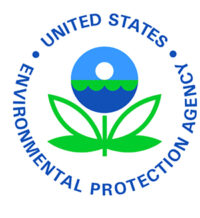Agency developing next steps to address risks
The U.S. Environmental Protection Agency is announcing its next steps to protect people from the herbicide dimethyl tetrachloroterephthalate (DCPA, or Dacthal). EPA is warning people of the significant health risks to pregnant individuals and their developing babies exposed to DCPA and will be pursuing action to address the serious, permanent, and irreversible health risks associated with the pesticide as quickly as possible. EPA has also issued a letter to AMVAC, the sole manufacturer of DCPA, restating the risks the agency found and stating that due to the serious risks posed by DCPA, the agency is pursuing further action to protect workers and others who could be exposed. EPA is taking this rare step of warning farmworkers about these concerns while it works on action to protect workers because of the significant risks the agency has identified.
“DCPA exposure represents a serious risk to pregnant workers and their children, so it’s imperative that we warn people about those risks now,” said Assistant Administrator for the Office of Chemical Safety and Pollution Prevention Michal Freedhoff. “We’re committed to taking action to protect the health of children, workers, and others who are exposed to DCPA.”
DCPA is an herbicide registered to control weeds in both agricultural and non-agricultural settings, but is primarily used on crops such as broccoli, Brussels sprouts, cabbage and onions.
DCPA is currently undergoing registration review, a process that requires reevaluating registered pesticides every 15 years to ensure they cause no unreasonable adverse effects on human health or the environment. In May 2023, EPA released its assessment on the risks of occupational and residential exposure to products containing DCPA, after the agency reviewed data that it compelled AMVAC to submit, which had been overdue for almost 10 years. The assessment found concerning evidence of health risks associated with DCPA use and application, even when personal protective equipment and engineering controls are used. The most serious risks extend to the developing babies of pregnant individuals. EPA estimates that some pregnant individuals handling DCPA products could be subjected to exposures from four to 20 times greater than what current DCPA product label use instructions indicate is considered safe. EPA is concerned that pregnant women exposed to DCPA could experience changes to fetal thyroid hormone levels, and these changes are generally linked to low birth weight, impaired brain development, decreased IQ, and impaired motor skills later in life.
Also of concern are risks to developing babies of pregnant individuals entering or working in areas where DCPA has already been applied (especially post-application workers involved in tasks such as transplanting, weeding and harvesting). Current product labels specify that entry into treated fields must be restricted for 12 hours after application. However, the evidence indicates that for many crops and tasks, levels of DCPA in the previously treated fields remained at unsafe levels for 25 days or more. EPA also identified potential risks for individuals using golf courses and athletic fields after DCPA was applied. Spray drift from pesticide application could also put developing babies at risk for pregnant individuals living near areas where DCPA is used.
Since the release of EPA’s 2023 assessment, AMVAC has proposed several changes to the DCPA registrations, including the recent cancelation of all DCPA products registered for use on turf. Those cancelations eliminate exposures to DCPA from recreational activities on and around turf. However, according to EPA’s analysis, other proposals submitted by AMVAC do not adequately address the serious health risks for people who work with and around DCPA. EPA is therefore preparing to take further action under the Federal Insecticide, Fungicide, and Rodenticide Act (FIFRA) as quickly as possible to protect people from the risks of DCPA.
When serious risks are identified, EPA can take action under FIFRA to suspend or cancel a pesticide. These actions are resource-intensive and take time to implement, partly due to the procedural requirements of FIFRA. A cancelation proceeding would take at least several months (if uncontested by the registrant), and potentially several years to accommodate a potential administrative hearing and any subsequent appeal of an order of cancelation (if the registrant contests the action). FIFRA also allows EPA to seek a suspension of a pesticide product while cancelation proceedings are ongoing if the Administrator determines it is necessary to prevent an imminent hazard. An administrative hearing and final order on a suspension proceeding (if the action is contested) would likely take several months to conclude. However, the Administrator may also issue an order of suspension—effective immediately on issuance—if he determines that an emergency exists such that an administrative hearing cannot be held before suspending. Any final order of suspension would remain in effect until cancelation proceedings end. EPA is considering these tools as it moves forward with the DCPA registration review, but in light of the serious risks posed by DCPA, chose to warn the public of them at this time as it continues its work.





